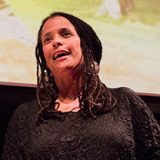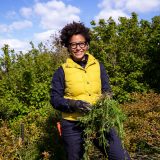Kathleen Cruz Gutierrez, Ph.D.
Kathleen “Kat” Cruz Gutierrez received her Ph.D. in Southeast Asian Studies with a Designated Emphasis in Science and Technology Studies from the University of California, Berkeley. Her dissertation, “The Region of Imperial Strategy: Regino García, Sebastián Vidal, Mary Clemens and the International Consolidation of Botany, 1858–1936,” was shortlisted for Best Dissertation in the Humanities by the International Convention of Asia Scholars in 2021.
A historian of Philippine botany, Kat also writes and conducts research on the plant humanities, Philippine weaving and dyeing, and Southeast Asian environmental history. She is an assistant professor in the Department of History at the University of California, Santa Cruz, where she collaborates with the Center for Southeast Asian Center Coastal Interactions and is the co-PI for Watsonville is in the Heart, an oral history and digital archive initiative to preserve stories of the first Filipino migrant farmers who arrived at California’s Pajaro Valley in the early 20th century.
Project
During her time at the LuEsther T. Mertz Library, Kat will be developing her book manuscript, Sovereign Vernaculars: Philippine Plant Knowledge at the Dawn of New Imperial Botany, that examines virtues of colonial botany as they were upbraided, challenged, or synergized by elements of the Philippine plant vernacular—linguistically or otherwise expressed—at the turn of the 19th and 20th centuries. She will be working with the Library’s extensive late Spanish and U.S. colonial material on the Philippines contained in the Elmer Drew Merrill Records, Mary Strong Clemens Papers, and Rare Book and Folio Room. Since her manuscript also relies on local non-textual sources, she will tap into the William and Lynda Steere Herbarium’s Philippine collection, which houses specimens first gathered by Filipino botanical collectors, whose less-archived stories she hopes to uplift.




